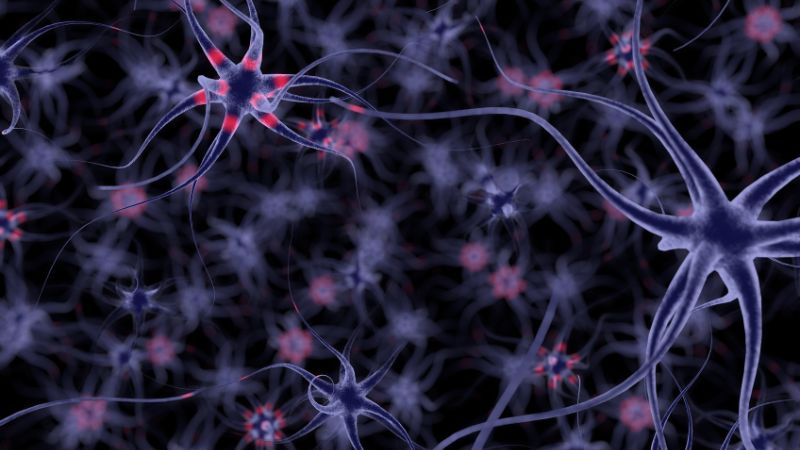READ TIME: 14m
DR JOHN DEMARTINI - Updated 1 year ago
Let’s start by talking about something called “false attribution bias”.
An example of a false attribution bias is where you have exaggerated the blame of somebody for something that happened in your life and minimized your role in what took place.
In other words, you’ve disassociated from your own causality, blamed things on the outside, and attributed something to somebody else – this is as a result from an event that you assume has more drawbacks than benefits.
In all likelihood, you have had moments in your life when someone behaved in a way that you perceived to be so called ‘terrible’, only to realize a few months or years later that it resulted in many benefits that actually served you. As a result, you may even have shifted from a state of blaming them for their actions or inactions into a state of gratitude for their actions or inactions.
In many cases, at the time you perceive a so called ‘negative’ event, you may not take the time to look for the equal upsides to the event that you blame and identify how the event as it is may in fact equally serve you.
As a result, you may tend to hold onto the blame and stay angry at this individual through projecting a false causality and false attribution bias – in other words, your perception that they caused this experience and that you are the victim.
I teach a program called the Breakthrough Experience, my signature two-day program that I have presented over 1,150 times around the world and online. Each week, I have people attending who have false attribution biases towards, for example, a mother who they perceive wasn’t there for them, a father who they perceive was too hard on them, a sibling that that they perceive was mean to them, or a spouse that they perceive was disinterested and in their words ‘never home’.
In fact, the majority of people arrive at the Breakthrough Experience with someone in mind that they are blaming – either another individual, or themselves because they feel guilty about something they have done or about something that they perceive that they should have done.
In most of the cases, these feelings of blame stem from false attribution biases and moral hypocrisies that they have picked up from their mothers, fathers, preachers and teachers (all the outside authorities that we give power to) about how individuals are supposed to be one-sided – nice never mean, kind never cruel, positive never negative, and generous never miserly.
As such, they tend to have unrealistic expectations on others and themselves to be one sided, and then blame others and themselves when this impossible fantasy of one-sidedness is not met.
No individual can be one-sided, in the same way that no magnet can be one-sided. You cannot have one side without the other.
Human beings have a tendency to want someone as scapegoat to blame for some challenging action because it provides a focus and an outlet for their emotions stemming from their false attribution biases.
- A false positive is an assumption that something's there when it's not.
- A false negative is an assumption that something's not there when it is.
- A false attribution bias involves blaming or crediting someone for some action that is not truly nor fully attributed to them.
Something you may find interesting is that many people who come to my signature seminar program the Breakthrough Experience express some degree of anger as a result of their unmet expectations. They often have a story or narrative that involves an accumulation of people they blame for not meeting their expectations, which most often results in feelings of either resentment, anger or depression.

They are often surprised when I tell them that people tend to blame others and project things on to them in an effort to avoid looking at themselves and the role they may have played.
In other words, blaming others can help distract you from the role you participated in or played.
You may become angry at how they are the cause of your feelings, instead of looking at the pieces of the puzzle you put in place.
Please note that I'm not suggesting you blame yourself.
As Epictetus, the Greek philosopher says: in your journey of personal development, you start out blaming others, then you blame yourself, and finally you find out that there's ultimately nothing to blame.
In the Breakthrough Experience, when people arrive with falsely attributed blame, either blaming themselves or blaming others, they leave the two-day program knowing with certainty that there's nothing to blame only magnificent opportunities to grow in love and wisdom. They realize that there is a hidden order that was there the whole time – they just didn't take the time to, or possibly not know how to look for it.
If you're fully conscious, you’ll see that there is nothing to blame.
When you're not conscious of both sides and you have unconscious components with false positives, false negatives, false attribution biases, or unconscious/ conscious splits in the mind - that is when you are most likely to either blame or give credit to somebody. (It can go both ways, but today's topic is about blame.
Here are a few quality questions that form part of the Demartini Method that I teach in the Breakthrough Experience that may help you move beyond blame:
Demartini Method Question 1:
What specific trait, action, or inaction do I perceive this individual displaying or demonstrating that I dislike (blame) or admire (credit) most?”
As an example, suppose you blamed someone for verbally criticizing you. You would then be wise to:
- Clarify the specific trait, action, or inaction you despised most in 3 or 5 words.
Note that you are describing what they did and the actions they took, as opposed to how you felt.
Nobody can make you feel a certain way – it’s your interpretation and your perception of what occurred that resulted in your feelings.
Let me give you an example. Suppose I offered to give you a billion US dollars on the proviso that I first take out a hammer and slam your thumb.
If I just slammed your thumb without giving you anything, you'd likely be angry. However, if I gave you a billion US dollars, you’d likely be grateful for the easiest billion dollars you just earned.
So, the associations you make with what people do is your own reality and not their action.
Their action is that they may have slammed your thumb, but that's not what caused your reactions.
Your reactions are based on your perceptions and associations.

If you associate more advantages than disadvantages, you’d likely give them credit.
If you associate more disadvantages than advantages, you’d likely give them blame.
In other words, the blame is not so much the result of what they did so much as how you interpreted what they did.
To sum up this first step, you are wise to identify what they actually did by looking at the facts of what they did instead of the fictions of how you felt.
Demartini Method Question 2:
Go inside yourself and think of a moment where and when you perceived yourself displaying or demonstrating that same or similar specific trait, action, or inaction that you blame them for.
I assure you, it's been shown for centuries and even in biblical writings, that whatever you see in others, you have within you.
As I often say, when you point your finger at someone else, you have three pointing back at you.
You may be too proud to admit what you see in them inside you or too humble to admit what you see in them inside you, but the truth is you have the trait you perceive – in fact you have every trait, both so called ‘positive’ and ‘negative’ traits that you perceive in others to the same degree that you see in them. And every individual has those same traits that you have too.
That's why pointing your finger at somebody doesn't really get you anywhere. You tend to only react and judge people on the outside for things that remind you on the inside of a trait you haven't loved in yourself.
It is wise to go a step further and ask yourself: “WHERE did I do it, WHEN did I do it, WHO did I do it to, and WHO perceived that I displayed or demonstrated it?”
Repeat the process again and again, integrally and honestly, until the quantity and quality of what you perceive in the other individual is now equally reflected and perceived in you.
If you hold yourself accountable, look at where you've done it to the same degree as you see in them, quantitatively and qualitatively, and really reflect and have true introspection instead of projecting blame, you’ll start to become conscious of your own role in the dynamic. As such, you’ll tend not to blame them or yourself but instead to look at the dynamic and what it’s trying to teach you.
I believe that you're designed to attract people into your life to remind you of the things you haven't loved in yourself, to give you an opportunity to love them.
So these people and events that you may be blaming could instead be a teacher instead of an injurer.
It’s wise to remember that injury on the outside comes from a jury from within. You're likely judging yourself and attracting the ‘injury’ to try to point out what you haven't yet loved in yourself.
Demartini Method Question 3:
“Let me go to that moment when I perceived that they verbally criticized me. How does it help me? What was the benefit?”
For example, did it humble you? Make you self-reflect, more resilient, more creative, more driven, more resourceful, more attentive to customer’s needs, less arrogant, less presumptive…
Once you see its benefits, it no longer has power over you and there is no longer a need to cast blame. Instead, you say, “Thank you for the feedback.”
You don’t have to be a victim of what other people do to you. You can take your perceptions of their actions and transform them into appreciation and gratitude.

Many of the problems people face in their life is because of an incomplete awareness or incomplete data. If you’re unconscious of the upsides, you’ll tend to blame people, events and situations because you’re not aware of how they may be serving you.
As an example, I almost died when I was 17 years old. If it weren’t for that, I wouldn't have gone to this little health food store, taken a yoga class, and met Paul Bragg.
So, that near death experience was exactly what catalyzed me to be where I am today. I would not have gone on that journey if it hadn't have been for those events.
I’m a firm believer that if you look at life as “in the way”, not “on the way”, you'll tend to be ungrateful instead of grateful, and weigh yourself down instead of lighten up your life.
So, it's not what happens to you but your perception of it. And you can change your perception; so instead of blaming somebody, why not use it as a catalyst to do something extraordinary with your life?
Demartini Method Question 4:
“Let me go to the moment where and when I perceived myself displaying or demonstrating that same or specific trait action or inaction. Who did I do it to? How was it a benefit to them if it was something I resented? How was it a drawback to them if it’s something I was proud of?”
You may be carrying self-blame and shame because you are unconscious of how what you have done may have benefitted or served the other individual.
When you don't find the upsides to the things you've done that you’ve labeled as downsides, that self-blame can run your physiology down, increase your aging process, weigh you down, and create auto immune responses.
It may also make you feel guilty, and guilt tends to make you want to sacrifice for other people to compensate for it. All these perceptions can distract you from your mastery of life.
Now, you may be wondering what happens if your perceive that something really devastating occurs?
I've worked with most unimaginable events that you would probably label as being a ‘trauma’ – assault, rape, incest, domestic violence – you name it. I am certain that there's nothing your mortal body can experience that your authentic self or immortal “soul” can't love and transcend.
So, the question is, why would you want to blame them all your life, blame yourself for putting yourself in that situation, be trapped in it, and run the story and drama all your life, when you have the ability to transform it?
You may not be serving yourself to the fullest by sitting there holding onto the story all your life.
But, you'll serve yourself by getting on and using it as opportunity and as fuel.
No matter what you've been through, no matter what you've done, I believe there's a way of finding out how to be grateful for that and move forward. If you’d love to put this into practical action then join me at the Breakthrough Experience 2-day seminar. You can find out more HERE
To Sum Up:
It is wise to transcend blame by transforming your awareness and seeing what you've been unconscious of, because the events that you think are terrible in your life are also equally containing gifts. Only the wise seeing both sides will see both the challenge and the support in equal measure which then liberates them from the bondage of their most basic survival based emotions.
Anything you can't see ‘on the way’ is going to be ‘in the way’ in your life, and you're going to weigh yourself down with it.
The quality of your life is based on the quality of questions you ask. If you want a quality life, it demands quality questions. If you’d love to learn how to ask quality questions then you’ll love to learn about the Demartini Method which you can do so HERE
If you intend to live a masterful life, it is wise to ask quality questions that bring you mastery.
If you can learn to ask masterful questions, like the ones I have shared with you in the main article above, you may be amazed at what you can accomplish in your life.
Questions, like those in the Demartini Method that I teach in The Breakthrough Experience, help you liberate yourself from the emotional baggage you carry around that’s likely robbing you of being fully conscious of the magnificence of who you are and the magnificence of your life.
Quality questions allow you to see the hidden order in the apparent chaos, and that’s the kind of questions you are wise to fill your day with - quality questions that liberate you from emotional drains, blames and frustrations that you face in life because of your lopsided perceptions.
Are you ready for the NEXT STEP?
If you’re seriously committed to your own growth, if you’re ready to make a change now and you’d love some help doing so, then click on the LIVE chat button bottom right of your screen and chat to us now.
Alternatively, you can book a FREE Discovery call with a member of the Demartini Team.
Interested in the Breakthrough Experience seminar?
If you’re ready to go inwards and do the work that will clear your blockages, clarify your vision and balance your mind, then you’ve found the perfect place to start with Dr Demartini at the Breakthrough Experience.
In 2 days you’ll learn how to solve any issue you are facing and reset the course of your life for greater achievement and fulfillment.
Click HERE to find out more
Important Notice:
The content shared in this blog is for education and personal development. It is not intended to diagnose, treat, cure, or prevent any psychological or medical conditions. The information and processes shared are for general educational purposes only and should not be considered a substitute for professional mental-health or medical advice. If you are experiencing acute distress or ongoing clinical concerns, please consult a licensed health-care provider.
Read full disclaimer HERE









